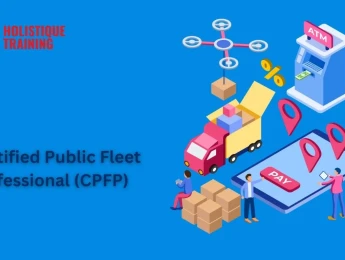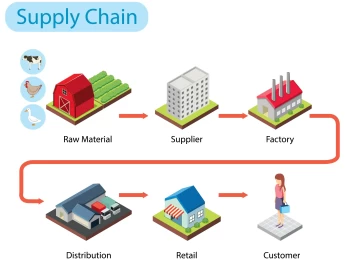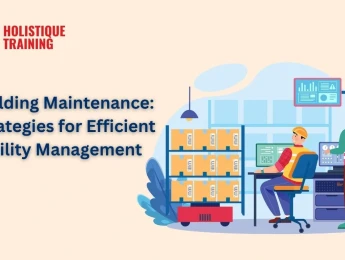One of the most critical aspects of supply chain management is understanding the overseas transport of goods. In some industries, most products sold come from different countries due to cheaper manufacturing costs.
However, getting those cheaper products to your own country for sale could be a complex process that requires in-depth knowledge and understanding of shipping, port management, logistics, and the overall costs of shipping products to ensure that this is the most cost-effective method compared to flying.
One of the primary considerations is the speed of shipping. Overseas transport can often take much longer than flight, but it has other benefits, such as bulk shipping, which can be much cheaper and help with profit margins.
To grow a business using overseas manufacturing, it’s essential to understand the accessibility of containers, freight management, and remote employee management to ensure your products get where they need to be on time and without damage.
Upon completion of this course, participants will be able to:
- Understand how the shipping industry is developing and how this could benefit the shipping of your goods.
- Understand maritime logistics value and how to make strategic shipping decisions.
- Develop knowledge of how the shipping trade changes globally and how this could affect you.
- Identify risk areas with freight management and container storage.
- Create a cost-effective shipping plan based on bulk shipping.
- Make key decisions regarding supply chain management and product accessibility.
- Manage a remote team of professionals to move stock using shipping channels efficiently.
This course is for anyone responsible for managing an overseas supply chain or intending to develop a more cost-effective business plan using bulk shipping methods. It would be most beneficial for:
- Operations Managers
- Project Planners & Leaders
- Change & Control Managers
- Health & Safety Personnel
- Supply Chain Managers
- HR Professionals
- Business Owners
- Supply Chain Personnel
This course uses various adult learning methods to help participants understand complex supply chain and shipping procedures. Participants will view presentations to uncover the processes involved in overseas transportation and conduct group discussions regarding risks and benefits.
They will participate in interactive activities to create the most cost-effective route management plans and develop disaster recovery and cargo loss plans based on real-world examples.
Day 5 of each course is reserved for a Q&A session, which may occur off-site. For 10-day courses, this also applies to day 10
Section 1: The Value of Maritime Logistics
- The concept of maritime logistics.
- Understanding the value of maritime logistics and how this fits with your business.
- Your strategy for overseas shipping.
- Supply chain management.
- Modes of transportation and what works for you.
Section 2: The Global Shipping Trade
- International maritime trading.
- How the shipping trade has changed internationally.
- The benefits of international trade.
- Shipping routes and your cost-benefit analysis.
- Dry port examples throughout Europe.
- Hinterland logistics.
Section 3: Managing Freight Transportation
- Intermodal transport characteristics.
- The benefits of using container shipping.
- Developing routes and creating a viable project plan.
- The configuration of liner shipping services.
- Shipping routes, network patterns, and port centrality for fastest delivery.
Section 4: Your Remote Logistics Team
- Reaching out to transport operators.
- Comparison of services to find the most cost-effective solution.
- The human element of transportation - what do the employees need?
- Effects on performance and wellbeing.
- Developing effective communication methods.
- How to deal with underperformance remotely.
Section 5: Supply Chain Integration & Logistics
- Integrating your supply chain into your business.
- Contingency plans for unforeseen issues.
- Auditing and risk assessment.
- The impacts of supply chains on performance.
- Container line logistics and related activities.
- Stakeholders and partners and their input.
Section 6: Container & Tanker Shipping Requirements
- Understanding maritime terminals and requirements from freights.
- Managing a contractual relationship.
- Transfer documentation and other components of smooth delivery.
- Managing safe transfer procedures.
- How to recover from cargo loss.
Section 7: Bulk Shipping Logistics
- The benefits of bulk shipping.
- The risks of bulk shipping.
- The dry bulk trade and fleet management.
- The economic drive of dry freight and bulk trades.
- The dry port concept.
Section 8: Port Management, Concept & Practice
- Operating the logistics hub in container ports.
- The economic and social network theories and predictions for evolution.
- Supply chain accessibility and system design.
- Creating a forward-thinking strategy.
- Port authorities and logistics chains.
- Data collection and research for future global change.
Upon successful completion of this training course, delegates will be awarded a Holistique Training Certificate of Completion. For those who attend and complete the online training course, a Holistique Training e-Certificate will be provided.
Holistique Training Certificates are accredited by the British Assessment Council (BAC) and The CPD Certification Service (CPD), and are certified under ISO 9001, ISO 21001, and ISO 29993 standards.
CPD credits for this course are granted by our Certificates and will be reflected on the Holistique Training Certificate of Completion. In accordance with the standards of The CPD Certification Service, one CPD credit is awarded per hour of course attendance. A maximum of 50 CPD credits can be claimed for any single course we currently offer.
- Course Code PO1-109
- Course Format Classroom, Online,
- Duration 5 days














